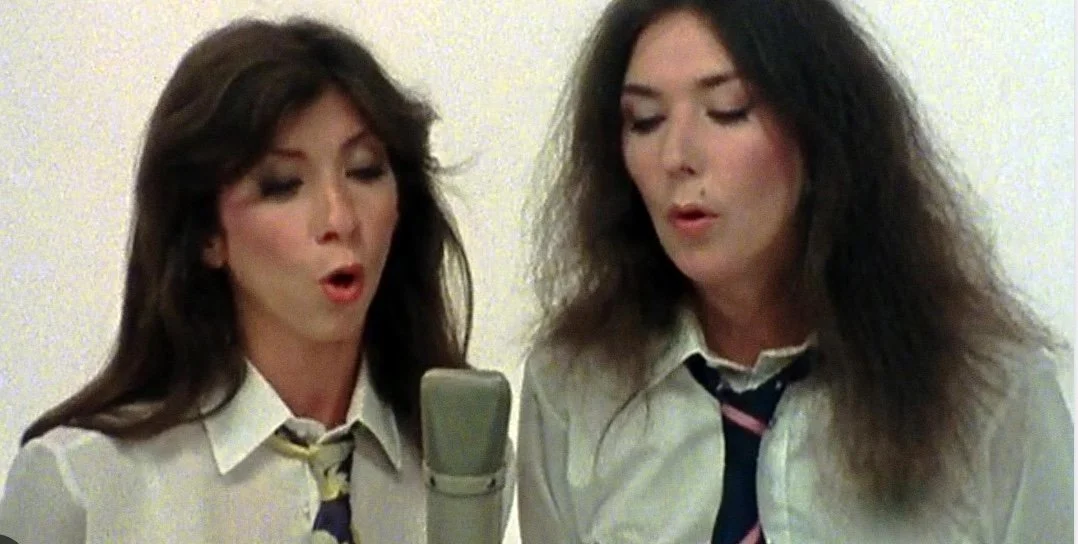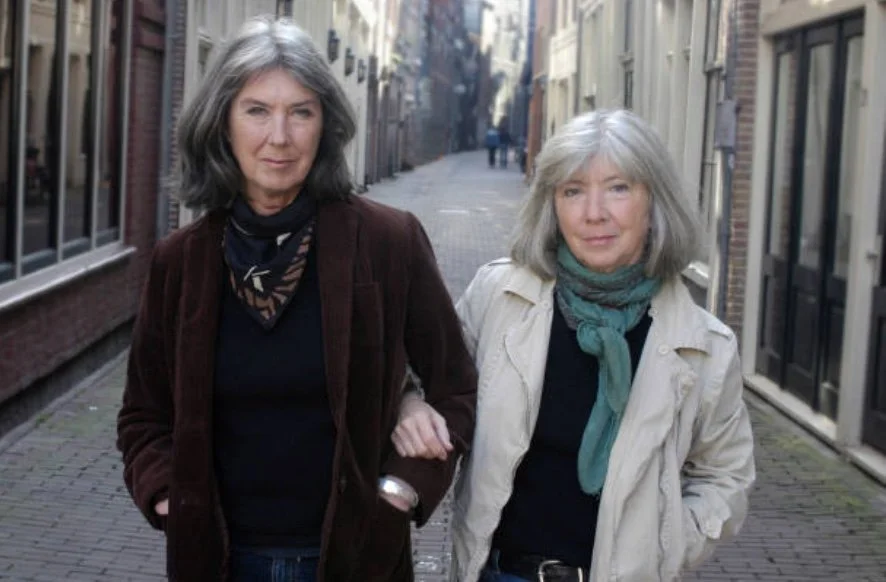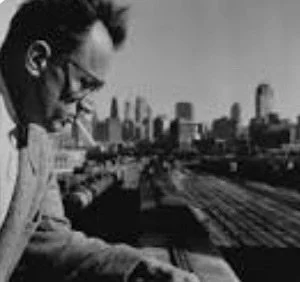kate & Ana mcgarrigle,”jacques et Gilles”
from: Matapedia, 1996
“Jacques et Gilles work at the mill
That stands beside the water
Could be Lowell, could be Lawrence
Or Nashua, New Hampshire
Jacques et Gilles, they hate the mill
But they’ve too many sons and daughters
The pay’s no good and they miss the woods
So they go and cut the lumber in Maine
Jacques et Gilles they’ve left the mill
To cut down trees in winter
Little Hélène who’s only ten
She knits and spins and sits and folds
In darkness and in hunger
In the cold mill by the frozen water
And St-Jean-Baptiste says, “That’s O.K
Come pray to me on Sunday
We’ll cash your notes
We’ll cast your votes
Just give me some of that money”
”Tell me mother, sister, brother
You who work beside me
When will we be goin’ home
To the chickens and cows, the horses and sows
The cousins and friends and loved-ones
Of our native country?”
”Ah, shut your mouth my daughter dear
Go fetch the boss some water
And just pretend ma belle Hélène
That at the borne-fontaine
You can’t comprehend
That Irish agitator”
And we’re goin’ down to La Marique
To work in the mills of New Hampshire
Two weeks we’ll march like savages
Down the banks of the Connecticut and the Merrimac rivers
”Why is Paddy such a bad guy?
Why is he so evil?
He wants more pay for his working day
And he says that kids like me
Should be in school”
”Ah, ferme ta gueule ma p’tite soeur
We’ll start for home tomorrow
But Paddy Boyle and Katy Doyle
They’ve left their soil
They’ve sailed away
They can’t go home and therein
Lies their anger and their sorrow”
And the old man smells of whisky-blanc
Of tobacco and fine leather
And all the boys Ti-Pit, Ti-Jean, Ti-Guy, Ti-Gus
Have brand new suits
And all the girls new coats and hats
And Madame Aubry a gorgeous hat of melton
With three fine feathers
And we’re goin’ home to Canada
To La Beauce, our beautiful country
We’ll take the new train from Nashua
Our pockets filled with American money
”
Genius, intimate social history piece dripping with the bobbing and weaving hidden truths of history, this time chronicling the immigration patterns between Quebec and New England’s factories. The accordion work glows like a warm fire against the backdrop of a regretfully written letter, sure to remember in vivid details the family wins and losses she can’t forget.
“
”When we get more houses than we can live in, more cars than we can ride in, more food than we can eat ourselves, the only way of getting richer is by cutting off those who don’t have enough.””
Mr. Algren


